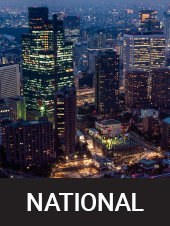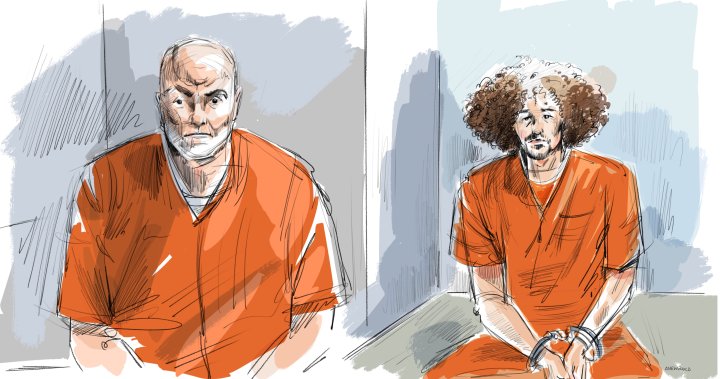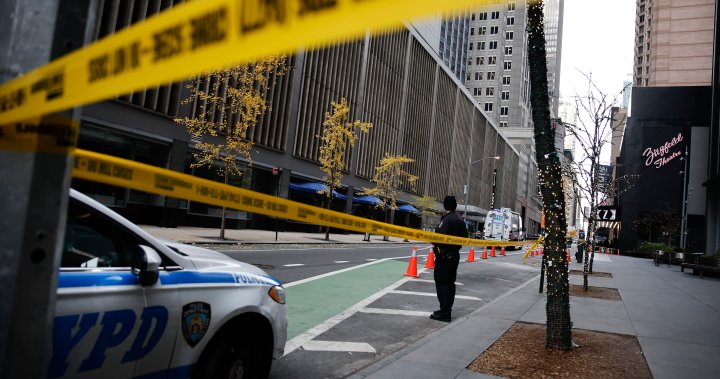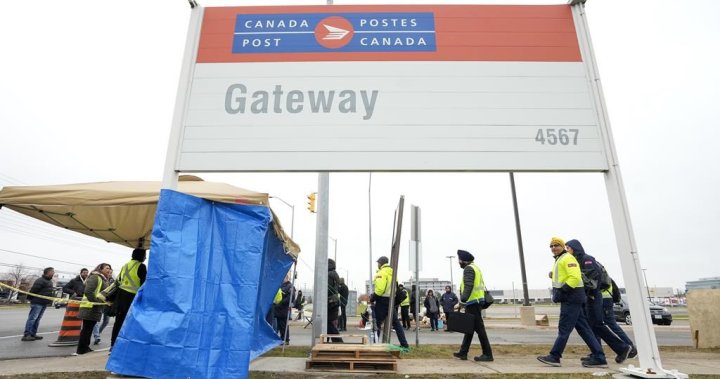The federal government is declining to explain how a Toronto man was able to immigrate to Canada despite allegedly having taken part in ISIS violence overseas.
Ahmed Fouad Mostafa Eldidi, 62, has been charged with committing an aggravated assault for the so-called Islamic State. The alleged incident took place outside Canada in 2015.
Sources have told Global News the charge stems from a video released by ISIS that year that shows a man dismembering a prisoner with a sword.
The RCMP arrested Eldidi and his son Mostafa, 26, at a hotel north of Toronto as they were allegedly about to commit a terrorist attack for ISIS. Police seized a machete and axe at the scene.
While police told reporters both suspects are Canadians, Global News has learned the son does not hold citizenship in this country, and the father immigrated after the ISIS execution video was released.

The Canada Border Services Agency did not respond to questions about why the father’s alleged past with ISIS was not detected during security screening before his immigration was approved.
“The CBSA is unable to provide information regarding the screening of a specific case,” a spokesperson for the agency said, adding screening decisions are “based on the information available at a moment in time.”
Immigration, Refugees and Citizenship Canada also did not answer questions, nor did the office of Public Safety Minister Dominic LeBlanc, which referred the matter to the RCMP.
The email you need for the day’s
top news stories from Canada and around the world.

Get daily National news
Get the day’s top news, political, economic, and current affairs headlines, delivered to your inbox once a day.
Kelly Sundberg, a professor at Calgary’s Mount Royal University, called it a blunder by a security screening system he said was inadequate and under-resourced.
“It’s a horrible failure,” he said.
At a news conference on Wednesday, the RCMP said the arrests had disrupted an attack on an unknown target in Toronto, but there was no further threat to public safety.
Three sources told Global News that before they were taken into custody, the father and son had allegedly recorded a video showing them holding bladed weapons in front of an ISIS flag.
The Eldidis appeared in court in Newmarket, Ont., on Thursday. They have been charged with six terrorism offences related to ISIS. They were scheduled to return to court on Aug. 7.

But in addition to facing conspiracy to murder charges, the elder Eldidi was accused of an alleged 2015 “aggravated assault, outside Canada … in association with a terrorist group, to wit the Islamic State.”
A video closely matching the description of the one the sources said led to the assault charge was released in June 2015 by the media office of Dijlah State, a province of ISIS in western Iraq.
The four-minute video, titled “Deterring Spies,” shows a prisoner allegedly confessing before being led outside. He then appears suspended from a crucifix-like structure in the sand.
Arabic script in the video says that enemies of God are to be killed, crucified or have their hands and feet cut off. A middle-aged man is then shown wearing a black cap bearing the ISIS logo.
Using a sword, he hacks the hands and feet off the prisoner. His face is briefly visible in the video. It is unclear whether the victim was still alive during the incident.
The video was posted on the website Jihadology, which is run by Aaron Zelin, a senior fellow at the Washington Institute, a think tank on the Middle East, and leading authority on ISIS.

Conservative Leader Pierre Poilievre called for answers from the government of Prime Minister Justin Trudeau on the apparent border security lapse.
“The Trudeau government must immediately explain how this alleged ISIS terrorist with blood on his hands managed to immigrate to Canada and be granted Canadian citizenship.”
The CBSA said it “works regularly and closely with domestic and international law enforcement partners” such as the RCMP and Canadian Security Intelligence Service to conduct security screening.
Screening checks on those seeking temporary and permanent residence are a “joint collaboration” between IRCC, CSIS and the CBSA, the agency said in a statement to Global News.
“IRCC assesses applicants’ personal information and history against a set of criteria – the security screening indicators – to determine whether applicants may pose a potential security risk.”
“If IRCC officers have inadmissibility concerns over a PR or TR application, they refer it for an in-depth security screening to the CBSA and, depending on the nature of the concern, also to CSIS,” the statement said.
“If information comes to light that a foreign national granted entry to Canada may be inadmissible, the CBSA can launch an investigation and initiate appropriate enforcement action.”
Since the younger Eldidi is not a Canadian citizen, he could face deportation proceedings, Sundberg said. The government could also revoke citizenship from Canadians who misrepresented their pasts when they immigrated, he said.
Stewart.Bell@globalnews.ca
© 2024 Global News, a division of Corus Entertainment Inc.





